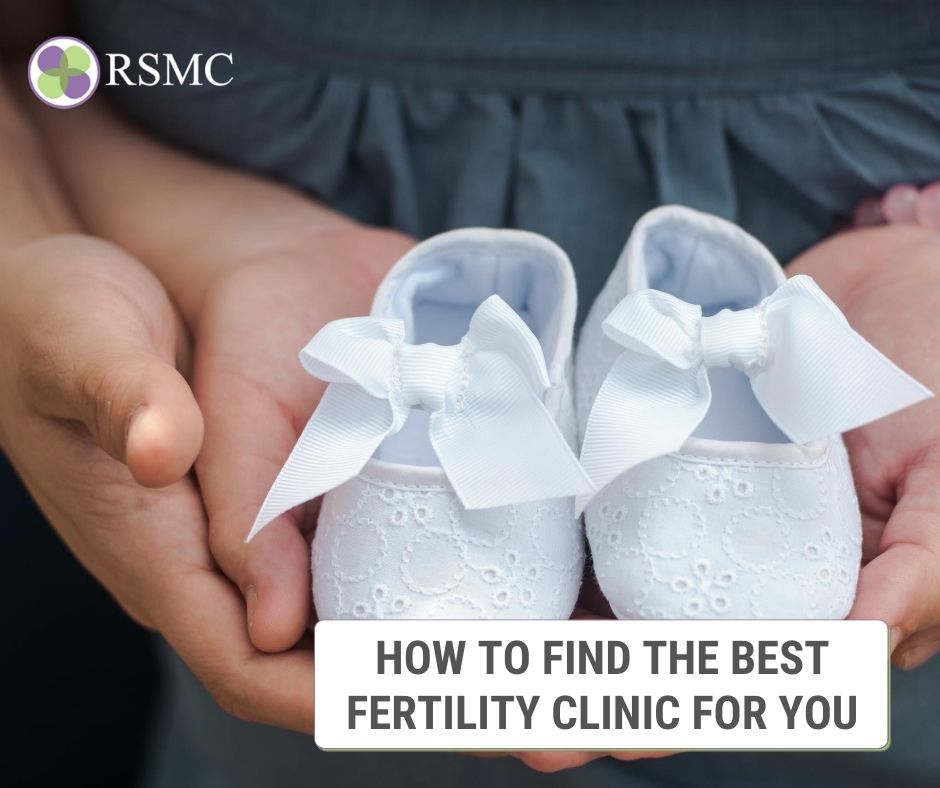To find the best fertility clinic for you, take time to research any clinic you consider, be it in San Diego or anywhere in the U.S. Don’t just choose the first place that returns your call. Pursuing fertility testing and treatment is a big step and can also involve a lot of money as well as time. You want to choose only the best clinic for your infertility treatment. Besides, speaking of the best, part of choosing a fertility clinic is personal and subjective. The fertility clinic for your friend may or may not be the best for you. For example, maybe you are looking for a fertility clinic in San Diego or its vicinity for easier transport, which was not an issue for your relative or friend. Perhaps, you prefer a clinic that has the best set of fertility doctors along with an all-under-one-roof service model.
Of course, you should ask your friends, doctor, insurance company, and local support group for recommendations. But, as the most reputed fertility clinic operating from San Diego, CA, we advise that you make sure to take a closer look at any clinic you consider for yourself.
If you are researching fertility clinics in San Diego or California, you can find information on:
- their websites
- the CDC’s fertility clinic statistics report page (more on that below)
- the Society for Assisted Reproductive Technology website (includes outcome stats for clinics)
- And, by speaking to a clinic representative over the phone or in-person
- By speaking with current or former patients (found through local infertility support groups)
- By meeting and interviewing your potential doctor at a consultation
Considering the Fertility Specialists
A fertility clinic is only as good as its doctors. hence, depending on how the clinic operates, you may be assigned one particular doctor, or you may see a few different doctors on a rotating basis. There are advantages and disadvantages to both setups, but usually, you want one doctor as your main contact and case manager.
Questions to consider when choosing a doctor are:
- Do they take time to answer your questions? Can you ask questions via email during the testing and infertility treatment? If they aren’t willing to meet with you before you choose them, then they may not have time for you when you’re a patient. Not being willing to answer your questions upfront isn’t a good sign.
- When and where did they take their training? Are they board-certified reproductive endocrinologists? Are they members of the American Society for Reproductive Medicine (ASRM)? Also, ask how long have they been working with infertility patients?
- Which hospitals do they have affiliations with? Does that hospital take your insurance? Even if your insurance doesn’t cover fertility treatment, if you need hospitalization due to complications of treatment, you’ll want the coverage.
- How long has the director been with the clinic? What about the other staff members? The longer people stay with the clinic, the more likely the working environment runs smoothly.
- Do they have physicians with various experiences at the clinic? Is it just one doctor who will handle your case or is it a team of fertility specialists? Moreover, who will you see on your visits? In case your situation is complicated, having a team can be beneficial. On the other hand, needing to deal with a different fertility doctor at every appointment can feel impersonal. The ideal is if the doctor you are seeing has a wide variety of experiences in the reproductive field.
Questions to Ask About Financing Testings and the Infertility Treatment
A reputed fertility clinic located in San Diego, or anywhere in California, should have staff who will handle the financial aspects of testing and treatment required for your infertility issue. They should be able to answer your questions about fees and payment plans. Additionally, you should sit down with them and discuss your options and ask questions on your first visit to the clinic.
It may feel odd to be considering price when looking at clinics, but considering the fee is practically important. Some infertility treatment can cost thousands of dollars, and a less expensive clinic that offers everything you need may be better than the fancy clinic around the block that offers more than you need, especially if you won’t be able to afford as many cycles at the expensive clinic.
Questions to consider regarding financing include:
- What insurance do they accept for fertility treatments, if at all? And will staff handle insurance claims? If not, will they provide you with the necessary paperwork to pursue insurance coverage for yourself?
- What pricing are various tests and treatments? Are any tests or treatments covered by your insurance? If so, then what do the quoted prices include? For example, when quoting the price for IVF, does that include medications and monitoring? Embryo storage? If not, what can you expect the total fee?
- Do they have a payment program? Will you have to pay for anything in advance? How much? If you’re doing IVF, what do you pay if your cycle is canceled before egg retrieval? What if it’s canceled before embryo transfer?
- Do you recommend or offer any finance programs? Does the clinic work with any national infertility financing programs, like the Attain Fertility Centers network or the ARC Fertility Program? Also, inquire if any fertility doctors or staff members receive kickbacks or financial incentives if you sign on with certain fertility financing programs? (If yes, be extra careful that the finance program is truly the best option.)
- How much does embryo freezing and storage cost? What about a frozen embryo transfer (FET) cycle?
- If the clinic is far from home? Does the clinic offer any discounted options for lodging? Maybe deals with local hotels.
Questions to Ask About Procedures and the Fertility Clinic’s Lab
Questions to discuss on the infertility treatment and procedure include:
- Is there an age cutoff for fertility treatment? What about a cutoff for FSH levels?
- Where are the procedures and tests done? Does the clinic have an on-site lab, or will you need to go elsewhere? If elsewhere, then how far away is it from the clinic?
- What procedures are possible at this clinic? Do they do IVF? ICSI? Blastocyst transfer or other assisted reproductive technology options? Do the procedures take place at the clinic or elsewhere? If at a hospital, which hospital? Moreover, if you live far from the clinic, can you perform certain tests and procedures closer to you?
- What donor or surrogacy options are available? Does the clinic run an egg donor program or do you have to use an agency? If they have a donor program, are you limited to donors from their program, or can you use an agency if you want? Do they offer embryo donation services? What if you decide to donate any of your leftover embryos, either to another infertile couple or to science? Can they help with that? If you need a Gestational Surrogate, how can they help you with that?
- What procedures are they recommending for your particular case? Will they consider ovarian stimulating drugs alone, or IUI before moving on to IVF? How many cycles of IUI will they agree to try? Different clinics may recommend different treatment plans, and one may be more favorable.
- Who decides whether or not the cycle is canceled if the response is less than optimal? Can you request that the cycle is continued anyway, even if the possibility of success is low?
- Does the lab perform cryopreservation of embryos? What about eggs and sperm? Where are the embryos, eggs, or sperm stored? What emergency procedures do they have for a power outage or earthquake?
Questions to discuss the guidelines include:
- How many embryos are transferred in one cycle? And who decides how many embryos are transferred: the doctor or the patient? For women under 35 years of age with a good prognosis, the ASRM strongly recommends transferring just one embryo per cycle, and no more than two.
- Do they report their IVF success statistics to the CDC? If yes, you should be able to find their success statistics on the CDC’s website.
- Does the lab has accreditation with the College of American Pathologists or by the Joint Commission? You can confirm accreditation on the College of American Pathologist’s website, searching by the zip code of the clinic you’re investigating.
Consider the Success Rates if you are looking for a Fertility Clinic in San Diego or California
Another important factor to consider is the clinic’s success rate. As mentioned above, you can see a clinic’s IVF success rates on the CDC’s website. Having the highest success rate doesn’t necessarily mean the clinic is the best. Unlike RSMC fertility clinic located in San Diego, some clinics avoid taking on hard cases or refuse fertility treatment to women above age 40 with their own eggs. This can obviously skew the statistics.
What you should be looking for is: are the clinic’s success rates greater than the national average? You should look at the live birth statistics for your age, and not just the pregnancy statistics (which will include miscarriages). You should also compare their multiple pregnancy statistics to the national average.
If you’re not doing IVF, ask about the live birth success rates particular to your situation and particular to the treatments being suggested. In addition, remember that only IVF success rates are reported to the CDC, so for other infertility treatment success rates, you’ll need to ask your fertility doctor. Moreover, Your fertility doctor should have the experience to help you decide if the treatments are worth the financial and emotional investment.
If a clinic promises you success, especially success in just one cycle, walk away. There’s no such thing as a 100% guarantee with IVF, no matter what reason for your infertility.
Conclusion
Are you struggling through any infertility issues to become a parent? Not sure which fertility treatment would be best for you or whether our clinic works for your needs? Visit our website to find out various options to overcome infertility or schedule a
consultation by calling 858-436-7186 or directly here.
Table of Contents
- If you are researching fertility clinics in San Diego or California, you can find information on:
- Considering the Fertility Specialists
- Questions to Ask About Financing Testings and the Infertility Treatment
- Questions to Ask About Procedures and the Fertility Clinic’s Lab
- Consider the Success Rates if you are looking for a Fertility Clinic in San Diego or California

























